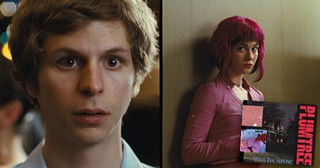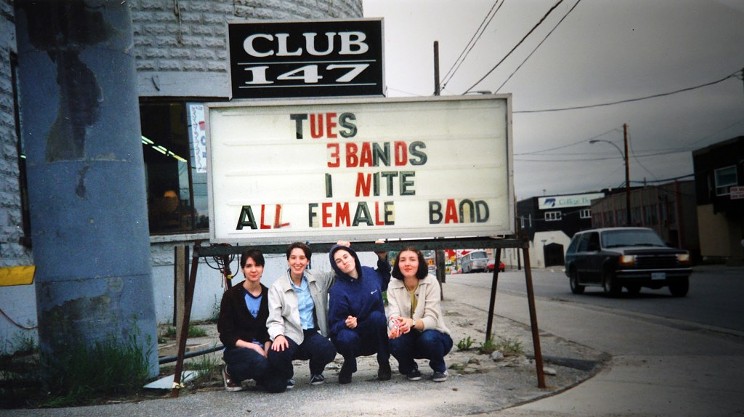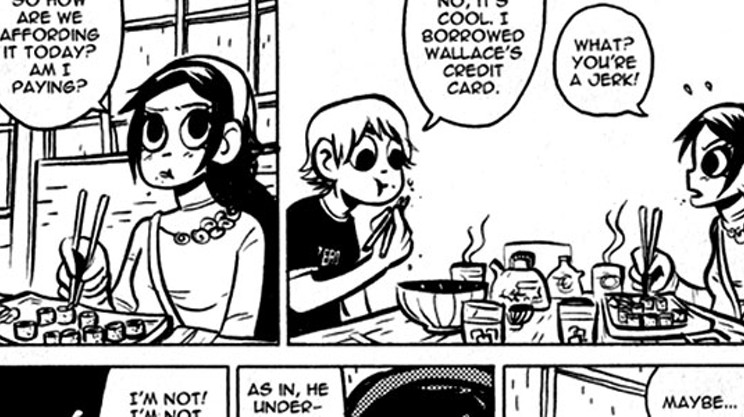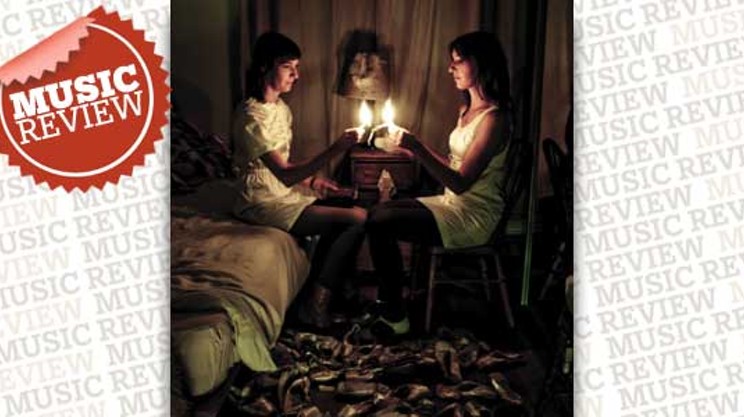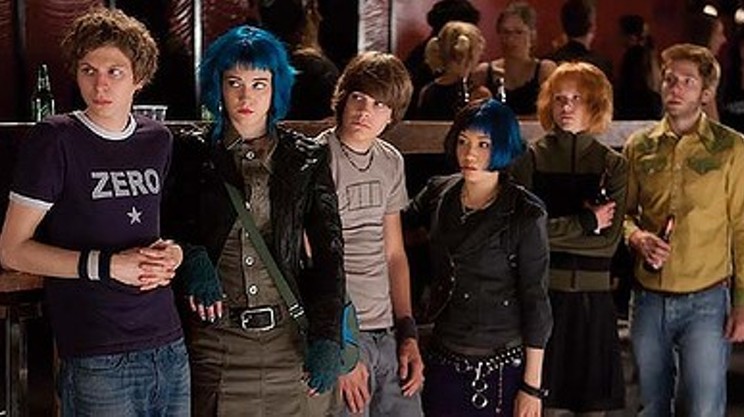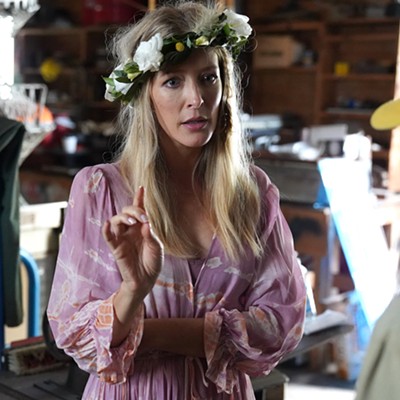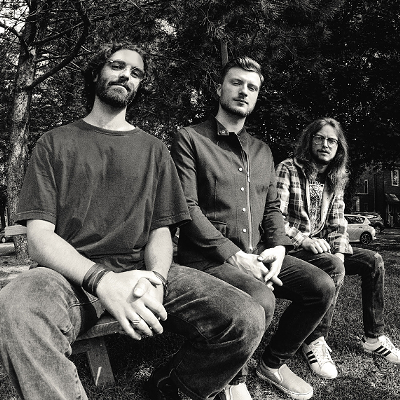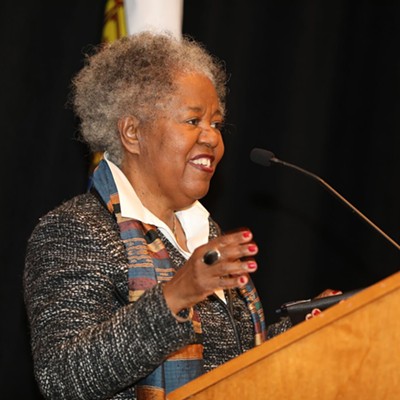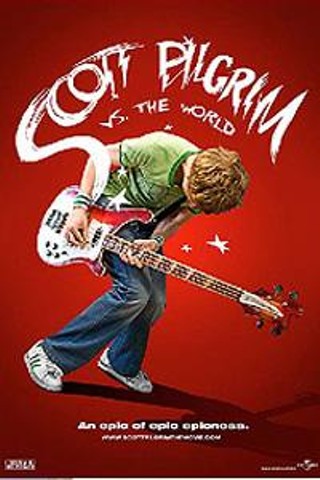Recently, I was interviewed about the story behind the song "Scott Pilgrim" and as I explained its convoluted, not-especially-riveting genesis into the telephone receiver, I heard the female interviewer's tone plummet from wildly enthusiastic to deeply disappointed. "Oh," she said, after I was done. "I'd always imagined Scott Pilgrim was, you know, the great love of your life. Or like, the one who got away."
Real life is rarely so romantic. Often it's funnier though. (Or maybe you had to be there.)
Scott Pilgrim was an inside joke shared by four teenage girls who practised twice a week in a cramped bedroom in a bungalow in Fairview. It was 1996, and I was still playing my pointy sunburst-blue Ibanez with the rosewood fret board and whammy bar, one of the final outward vestiges of my heavy-metal heart. One night I sat down with it on my bedroom carpet and wrote the opening riff to "Scott Pilgrim." It sounded tough, which I liked, and the rest of the band liked it, too, when I played it for them at our next practice.
On her classy 12-string Rickenbacker, Amanda worked out a slight variation on the riff to play along with me, and then Lynette laid down a beat and Catriona a bass line. Back then, Catriona was primarily a blues harmonica player of all things, and had joined Plumtree just a few weeks earlier. "Scott Pilgrim," in fact, was the first bassline she ever wrote. I've since heard her claim to be a lucky person, and this is probably the most significant proof of that.
We worked out the song over the course of several practices. I'm foggy on details, as it was written exactly the way we wrote every other song---collaboratively, painstakingly, our attention wholly focused on our riffs and fills and not on our lyrics and vocals. None of us were singers, you see, and we all felt a little annoyed about having to do it. But getting a fifth member was a lot of effort so instead we'd made a rule early on that whoever came up with the main song idea also had to sing lead.
I approached the mic, which was plugged into somebody's amp since we never owned a PA, and sang the first thing that came to mind: "I've liked you for a thousand years, a thousand years. I've liked you for a thousand years, a thousand years."
This is probably the place to point out that my late teens were a hot fog of obsessions and pining. It's difficult to say who was on my mind at that precise moment. We were touring Canada on a regular basis by then, so my crushes had gone national. The objects of my affection were always shifting and the intensity of the feelings rose and fell according to circumstance. If I hadn't seen Him for a few months, the flames died out. Sweet, innocent penpal correspondence could keep things burning for years. Then there was the most devastating kind of crush of all: falling for a tour mate. Oh, the mess of it!
But Plumtree was not the kind of band to share deep-down, embarrassing private stuff with each other, so we often suffered our various conditions in silence. Or, in the case of "Scott Pilgrim," tossed-off angst that stood in for lyrics.
"You can't stand to see me that way," I crooned. "No matter what I do, no matter what I say! You can't stand to see me that way. Yeah, yeah!"
Eventually we finished the song. Shortly thereafter, Dave from The Inbreds asked us to do a split seven-inch with them so we went to Laurence Currie's Idea of East on Barrington Street and tracked it. There had also been an attempt to record with Philip Pilgrim, a music producer friend of a friend with pro gear who lived deep in the woods off Purcells Cove Road. That hadn't panned out, though clearly Mr. Pilgrim's surname had left an impression.
The "Scott" part of the song title came from Scott Ingram, chartered accountant to the (indie rock) stars who has the CA logo tattooed in flames on his forearm. We'd met him in Toronto on our first tour and he's stayed in our lives ever since. These two disparate acquaintances became one during a Plumtree practice, which were always half storytelling sessions, half focused rehearsal. Lynette was telling a story about Scott Ingram and mixed him up with Philip Pilgrim and when the two names collided, we laughed till we got giddy. That's all it took, really, to christen a tune. Something stupid that made us laugh hard. Our song titles hardly ever had anything to do with our lyrics. That was another rule, more of an unspoken one.
"Scott Pilgrim" became the B-side to The Inbreds' glorious "North Window," a limited-edition release on wax that landed in the hands of then-fledgling cartoonist Bryan Lee O'Malley. Bryan was a fan of the east coast scene and was once one of just three people in attendance at a sad-sack Plumtree show at The Whippet Lounge in London, Ontario. He liked our song enough to use its name for the title character in a comic book he was writing about a slacker musician who falls for a girl with seven evil exes. That comic became a series, that series became a hit, that hit series just became a movie.
Nothing special, right? The stuff of humdrum teenage life in the suburbs. Or, evidence that some of the biggest opportunities in life come out of unforced, uncalculated fun times with your friends.
Writer and musician Carla Gillis is currently in Toronto reliving the ’90s. She plays in the indie pop band SISTER with her sister/former Plumtree drummer Lynette. Their debut EP is available at zunior.com. A Plumtree best-of compilation hits stores in late August.

